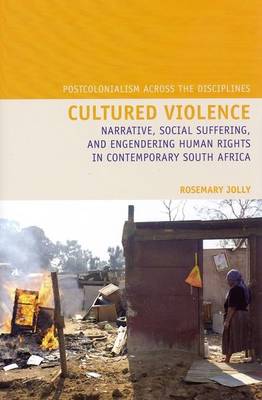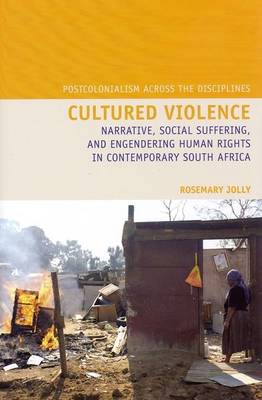
- Afhalen na 1 uur in een winkel met voorraad
- Gratis thuislevering in België vanaf € 30
- Ruim aanbod met 7 miljoen producten
- Afhalen na 1 uur in een winkel met voorraad
- Gratis thuislevering in België vanaf € 30
- Ruim aanbod met 7 miljoen producten
Zoeken
Cultured Violence
Narrative, Social Suffering, and Engendering Human Rights in Contemporary South Africa
Rosemary Jolly
€ 27,95
+ 55 punten
Omschrijving
Uses a range of narratives to explore contemporary South African culture and illuminate a cultural 'state of the nation' in terms of violence, gender, human rights and democracy.
Specificaties
Betrokkenen
- Auteur(s):
- Uitgeverij:
Inhoud
- Aantal bladzijden:
- 192
- Reeks:
Eigenschappen
- Productcode (EAN):
- 9781846318733
- Verschijningsdatum:
- 2/09/2013
- Uitvoering:
- Paperback
- Afmetingen:
- 160 mm x 232 mm
- Gewicht:
- 304 g

Alleen bij Standaard Boekhandel
+ 55 punten op je klantenkaart van Standaard Boekhandel
Beoordelingen
We publiceren alleen reviews die voldoen aan de voorwaarden voor reviews. Bekijk onze voorwaarden voor reviews.








